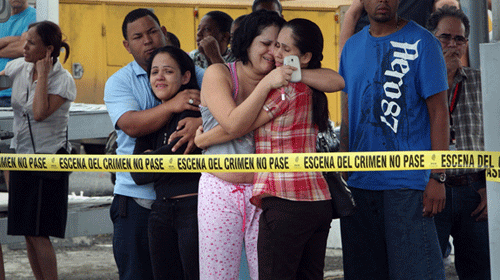Justice Department: Police Misconduct in Responding to Domestic and Sexual Violence Can Violate Survivors' Civil Rights


Far too often, survivors of domestic and sexual violence face disbelief, victim-blaming and shaming, hostility, and a refusal to investigate, or even record, their reports from police. In Puerto Rico, the ACLU found that police failure to enforce domestic violence laws contributed to the highest per capita rate in the world of women killed by their intimate partners. The Puerto Rico Police Department also systematically underreported rape crimes and rarely took action when their own officers committed domestic violence, allowing 84 officers who had been arrested two or more times for domestic violence to remain active. In Washington DC, Human Rights Watch described serious problems with police documentation and investigation of sexual assault cases. In Norristown, PA and many other towns across the U.S., police penalize victims of domestic violence who reach out for law enforcement assistance, including by threatening eviction, pursuant to local ordinances.
While police abuses such as racial profiling or police brutality are well understood as civil rights violations, police misconduct in enforcing domestic and sexual violence laws is not. For years, the ACLU has argued that systemic problems in policing and domestic violence can violate survivors' civil and human rights because they are often rooted in discriminatory attitudes about women, as well as about people of color, immigrants, and LGBT people. Victims of these crimes may be denied equal protection under the U.S. Constitution when domestic or sexual violence is treated less seriously than other offenses. Due process violations may also occur when police affirmatively condone the violence, or when a victim is put at greater risk as a result of police action.
Last Thursday, the Office of Community Oriented Policing Services, the Office for Victims of Crime, and the Office on Violence Against Women of the Department of Justice issued a crucial joint statement on addressing gender discrimination in policing. Because "gender bias plays a role in undermining the effective response by law enforcement to crimes against women," the statement announced that the prevention of sex-based discrimination by law enforcement is a "top priority" of the Civil Rights Division of DOJ in its oversight of law enforcement agencies. Indeed, in the last two years, DOJ launched groundbreaking investigations into departments in Puerto Rico, New Orleans, Maricopa County, AZ, and Missoula, MT to address grave concerns about their policing of domestic and sexual violence.
The joint statement and these investigations send a critical message about the importance of law enforcement accountability. In the statement, DOJ notes that many law enforcement agencies need to improve their response to all forms of violence against women, encouraging jurisdictions to "review and revise policies, protocols, and, most importantly, practices, to ensure they are free from gender bias." The statement includes a list of resources for law enforcement on how to appropriately address domestic and sexual violence, but does not give further guidance on how the Constitution and federal laws apply to protect victims or the fundamental elements of effective law enforcement responses to domestic or sexual violence. Such guidance would give greater clarity to law enforcement agencies seeking to strengthen their practices, as well as better informing survivors of domestic and sexual violence about their civil rights. We urge DOJ to continue to develop its work in this area.
Learn more about police corruption and other civil liberty issues: Sign up for breaking news alerts, follow us on Twitter, and like us on Facebook.
Stay informed
Sign up to be the first to hear about how to take action.
By completing this form, I agree to receive occasional emails per the terms of the ACLU's privacy statement.
By completing this form, I agree to receive occasional emails per the terms of the ACLU's privacy statement.

